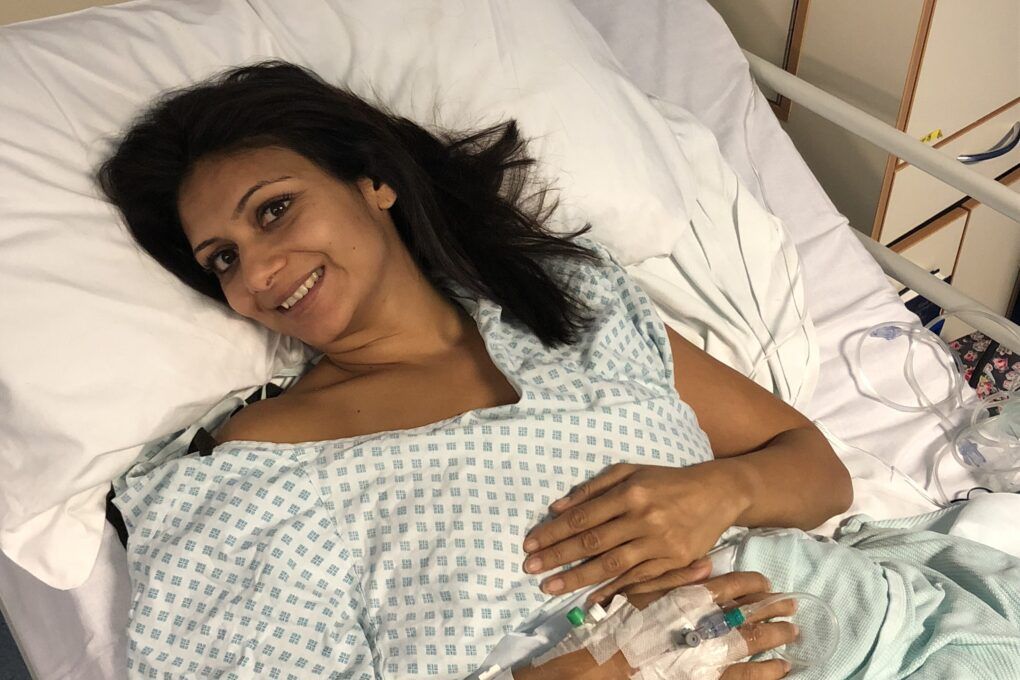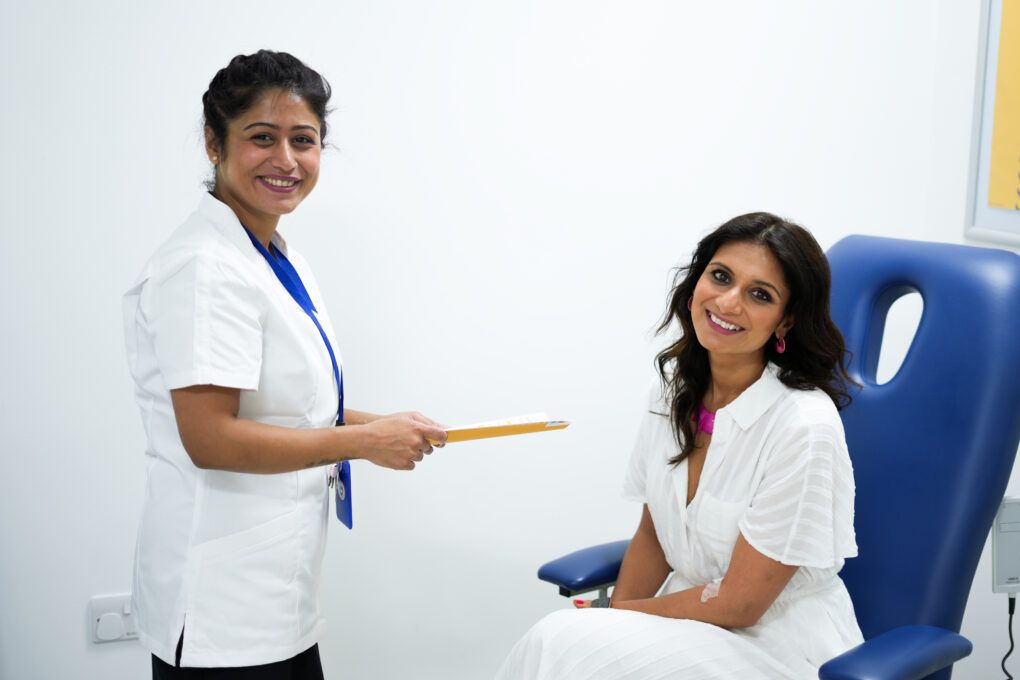Dr Anisha Patel: ‘Bowel cancer was brutal. I’m joining Our Future Health so others don’t suffer like I did’
Five years ago, NHS GP Dr Anisha Patel was a 39-year-old working mum with two young children, aged six and five. She was accustomed to putting tiredness and occasional Irritable Bowel Syndrome (IBS) down to her busy, sometimes stressful, lifestyle.
It was only when Anisha’s symptoms worsened that she decided to visit her GP. Two weeks later, she was diagnosed with stage 3 bowel cancer.
Her experience helps explain why she wanted to volunteer for Our Future Health. Anisha hopes to help researchers improve the early detection and treatment of diseases like bowel cancer, so others don’t have to suffer like she did.
Silent symptoms
With the benefit of hindsight, Anisha, now 43, can see that her bowel habits indicated cancer. But as a practicing GP, she was able to find reasonable explanations for these changes – even when she found blood on the toilet paper.
“Life was so full on then, I just thought it was my body’s way of responding to the stress,” she remembers. “After childbirth, piles and finding blood in your stool is pretty common,” she says. “I’d been getting more constipated and would need the toilet more frequently too, but I’d noticed it was cyclical, so I thought it was hormonal.”
At 39, Anisha didn’t fall into an ‘at-risk’ category. She wasn’t in the age bracket most at risk of bowel cancer (40% of cases in the UK are diagnosed in over 75s); rates of bowel cancer in the Asian community are lower than the White ethnic group; and there was no history of bowel cancer in her family. Anisha also led a healthy lifestyle and hadn’t experienced bowel issues in the past.
However, on a family holiday in Italy in July 2018, her symptoms worsened – “I was getting more explosive movements and I was seeing more blood,” she says. Anisha booked a GP appointment for her return. Her GP referred her for a colonoscopy and biopsy.
Two weeks later, Anisha received her diagnosis: she had stage 3 bowel cancer. “I felt quite detached from my diagnosis in the beginning, I just wanted to get through it,” she remembers. “I was in denial.”

‘It was such a whirlwind’
Anisha describes her cancer treatment as “brutal” and the months that followed her diagnosis as “a whirlwind”. She underwent surgery to remove the tumour, had a stoma bag fitted and then began three months of chemotherapy.
Anisha says she tried to stay stoic, but it wasn’t always possible. She remembers crying solidly on the ward for three days, when the reality of her situation caught up with her.
“They were dark days, especially during chemotherapy,” she recalls”. It felt like the treatment was coming in cumulative hits. The only thing that kept me going was my family – my kids.”
She finished her treatment in February 2019. “Suddenly I was out the other side of this very intense treatment schedule. We had a party to celebrate with the people who had supported me all along. It was very emotional.”
Turning a negative into a positive

As someone who has had cancer and survived it, Anisha is getting behind Our Future Health because she wants to improve healthcare for bowel cancer patients. “Turning a negative into a positive and doing something to help someone in the future is really important to me,” she says. It’s the motivation behind her new book Everything You Hoped You’d Never Need To Know About Bowel Cancer: A Doctor’s Very Personal Guide To Getting Through The Sh*t And Beyond.
Early diagnosis is crucial. 16,800 people die from bowel cancer in the UK each year, but more than nine in 10 people will survive if diagnosed at the earliest stage.
“I’ll never know what would have happened if I’d been diagnosed when I first noticed things weren’t right,” says Anisha. “Maybe my treatment would have been less brutal. The problem with bowel cancer is that it can often be symptom free, which is why screening programmes are so important.”
Tests for bowel cancer are very good at identifying individuals at high risk, so, even in the absence of symptoms, it is important that people in the UK use bowel cancer screening offered by the NHS.
Dr Michael Cook, Executive Director of Science at Our Future Health says: “Our Future Heath will be a translational catalyst for bowel cancer treatments. By recruiting up to five million volunteers across the UK, researchers will be able to better understand the diverse complexity of bowel cancers, as well as why certain individuals respond well to certain treatments but not others. This includes current treatments as well as treatments that are in development, with the ability for researchers to invite volunteers to clinical trials.”
Questions that need answering
Today, five years after her diagnosis, Anisha says the cancer still plays on her mind. “I have so many questions. What if the cancer comes back? How will I manage the side effects?
“What about my children? What about my brothers? Are they more at risk because I had cancer?
“By taking part in Our Future Health, you could help researchers discover so much more about this terrible disease. They’ll develop better treatments and bring us closer to a world where early detection is commonplace.
“My hope is that others won’t have to go through what I went through.”

Let’s prevent disease together
By volunteering for Our Future Health, you can help health researchers discover new ways to prevent, detect and treat common conditions such as diabetes, cancer, heart disease, stroke and Alzheimer’s.